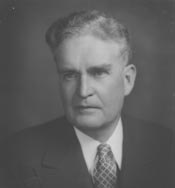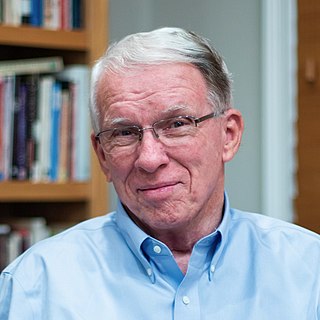A Quote by D. A. Carson
Most good evangelical Study Bibles have more in common than people sometimes realize. All of them are committed to explaining the Bible to lay readers.
Related Quotes
There is more Bible buying, Bible selling, Bible printing and Bible distributing than ever before in our nation. We see Bibles in every bookstore - Bibles of every size, price and style. There are Bibles in almost every house in the land. But all this time I fear we are in danger of forgetting that to HAVE the Bible is one thing, and to READ it quite another.
I seem to have three categories of readers. The first is nonbelievers who are glad that I am reading the Bible so they don't have to bother. The second group, which is quite large, is very Biblically literate Jews. And the third, which is also very large, is Christians, most of them evangelical. The evangelical readers and the Jewish readers have generally been very encouraging, because they appreciate someone taking the book they love so seriously, and actually reading it and grappling with it.
"Study Bible" is the expression used for Bibles that include significant explanatory notes, usually at the bottom of the page, sometimes in the margins. Often a Study Bible will also include some brief articles, photographs of geographical and archaeological sites, fairly extensive maps, and charts that summarize a lot of information.
Study Bibles tend to circulate widely, so they play a disproportionate role in helping Christians and others understand holy Scripture. Further, many of our members have long used one or two other Study Bibles, and it is important that Christians not be tied too tightly to only one option, however good it may be.
The Bible is full of interest. It has noble poetry in it; and some clever fables; and some blood-drenched history; and some good morals; and a wealth of obscenity; and upwards of a thousand lies. This Bible is built mainly out of fragments of older Bibles that had their day and crumbled to ruin. So it noticeably lacks in originality, necessarily. Its three or four most imposing and impressive events all happened in earlier Bibles; there are only two new things in it: hell, for one, and that singular heaven I have told you about.
We must come to the Bible with the purpose of self-exposure consciously in mind. I suspect not many people make more than a token stab in that direction. It's extremely hard work. It makes Bible study alternately convicting and reassuring, painful and soothing, puzzling and calming, and sometimes dull - but not for long if our purpose is to see ourselves better.
That happened when I was a freshman in high school. The guy reading it [the Bible] was dating my older sister. I thought he was the cutest thing that had ever happened in Nashville. He was nine years older than me and I thought, 'Mimi, I hate to do this to you, but I'm going to steal this guy away.' So I went to this Bible study thinking I was going to make this guy fall in love with me. I was fourteen. Hey, you know. But I was so overwhelmed by what they were talking about at this Bible study. I became a very serious, committed Christian.
You have to lay down in the center of the action lay down and wait until it charges then you must get up face it get it before it gets you the whole process is more shy than vulnerable so lay down and wait sometimes it's ten minutes sometimes it's years sometimes it never arrives but you can't rush it push it there's no way to cheat or get a jump on it you have to lay down lay down and wait like an animal .
When we turn the Bible into an adjective and stick it in front of another loaded word, we tend to ignore or downplay the parts of the Bible that don’t quite fit our preferences and presuppositions. In an attempt to simplify, we force the Bible’s cacophony of voices into a single tone and turn a complicated, beautiful, and diverse holy text into a list of bullet points we can put in a manifesto or creed. More often than not, we end up more committed to what we want the Bible to say than what it actually says.


































